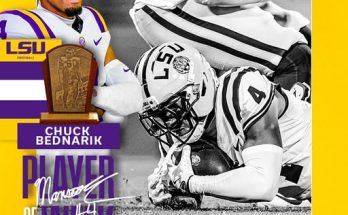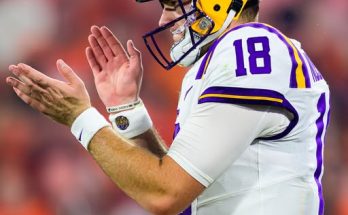**Countdown to Kickoff: Remembering #44 Bobby Majors—Tennessee’s All-American Triple Threat**
As the countdown to another season of Tennessee Volunteers football begins, fans old and new reflect on the legends who shaped the program’s storied history. Among the greats who donned the iconic orange and white, few embodied versatility, toughness, and sheer playmaking ability like Bobby Majors. Wearing the famed #44 jersey, Majors wasn’t just a star—he was a triple-threat All-American whose impact on the field remains unforgettable.Born into football royalty as the younger brother of Tennessee legend Johnny Majors, Bobby had big cleats to fill. But from the moment he stepped onto the field for the Volunteers, he carved out his own legacy. A native of Huntland, Tennessee, Bobby arrived at UT in 1968, joining his brother’s alma mater with a chip on his shoulder and a relentless work ethic. What followed was a career that would etch his name into Vols folklore.Bobby Majors wasn’t just a defensive back—he was a game-changer in every phase of the game. His ability to dominate as a cornerback, return specialist, and occasional offensive weapon made him one of the most versatile players in college football during his era.
1. **Lockdown Defender** – As a defensive back, Majors was a ballhawk before the term became mainstream. His instincts, speed, and fearlessness in coverage made him a nightmare for opposing quarterbacks. In 1971, he led the nation with an astonishing *10 interceptions*, a single-season school record that still stands today. His 14 career interceptions remain among the most in Tennessee history.
2. **Electric Return Man** – Majors didn’t just shut down passing attacks; he flipped the field with his return skills. His punt return average of *14.1 yards* in 1969 led the nation, and his ability to turn special teams into scoring opportunities added a dynamic edge to Tennessee’s game plan.
3. **Clutch Performer** – Whether it was a crucial interception, a momentum-shifting return, or a timely offensive play, Majors thrived under pressure. His performances against rivals like Alabama and Florida cemented his reputation as a big-game player.Majors’ senior campaign in 1971 was nothing short of legendary. Not only did he lead the nation in interceptions, but he also earned unanimous All-American honors, becoming the first Tennessee defensive back to receive such recognition. His play was instrumental in the Vols’ 10-2 record, including a dominant Sugar Bowl victory over Air Force. That season, Majors wasn’t just a standout—he was the heart and soul of a Tennessee team that reasserted itself among the nation’s elite.What set Majors apart wasn’t just his athleticism—it was his toughness. Standing at just 5’9”, he played with a ferocity that belied his size. Teammates and coaches often spoke of his relentless preparation and leadership, qualities that made him a captain and a fan favorite. His competitive fire was contagious, elevating those around him and setting the standard for future Vols.Following his college career, Majors was drafted by the NFL’s Chicago Bears but chose to play in the World Football League (WFL) before transitioning into coaching. He returned to Tennessee as an assistant coach under his brother Johnny in the late 1970s, helping guide the Vols through a period of resurgence. Later, he became a successful high school coach in Knoxville, continuing to influence the next generation of players.Bobby Majors’ #44 jersey is more than just a number—it’s a symbol of excellence, versatility, and the relentless spirit of Tennessee football. His records still stand, his highlights still inspire, and his impact is still felt by those who understand what it means to play for the Power T.
As we count down to kickoff, we don’t just celebrate the upcoming season—we honor the legends who built the foundation. Bobby Majors wasn’t just a player; he was a Tennessee icon, a triple-threat superstar, and a reminder of what it means to wear the orange with pride.
Here’s to #44—a Vol for the ages.



